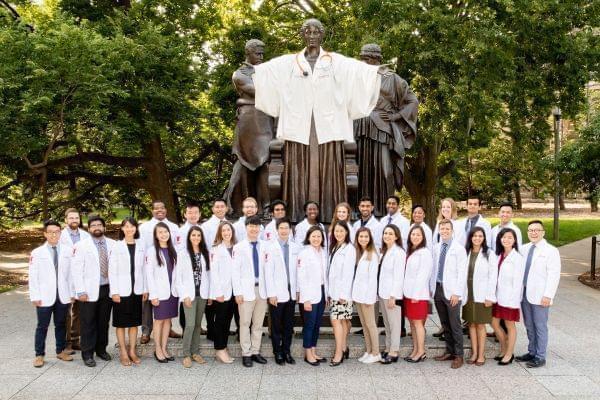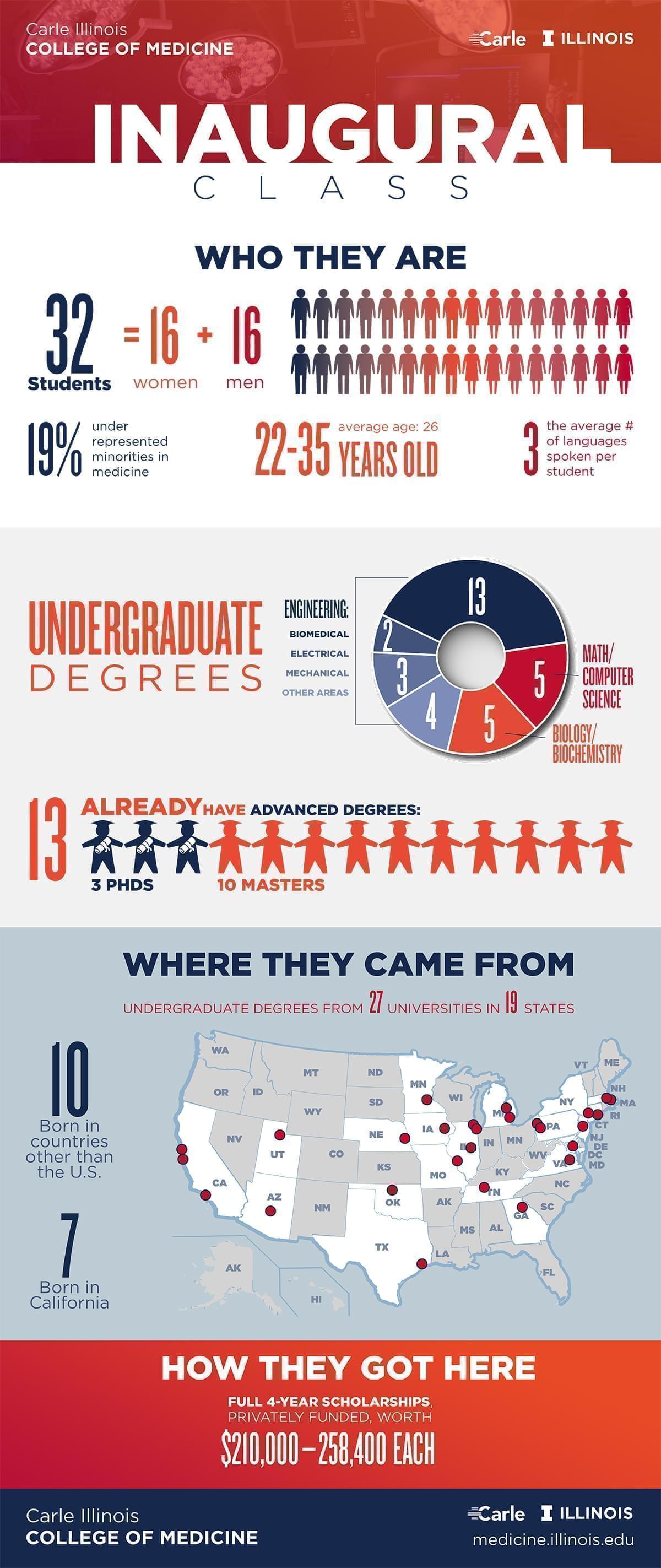New Med School To Focus On Problem-Solving, Improving Health Care

The first class of the Carle Illinois College of Medicine will receive privately funded, four-year tuition scholarships. L. Brian Stauffer/University of Illinois
The Carle Illinois College of Medicine welcomed its first class of 32 students this week. The new medical school is a partnership between the University of Illinois Urbana campus and the Carle Health System.
While many medical schools offer engineering courses as electives, the Carle Illinois College of Medicine will fully integrate engineering principles into the curriculum, said Dr. Judith Rowen, associate dean of student affairs.
In this first week of orientation, she said students are getting acquainted with the approach. Every course offered in the new college is run by an engineer, a clinician and a basic scientist.
“When you hear engineering and medicine, a lot of people immediately think of devices [like] prosthetic limbs,” Rowen said. “But it goes way beyond that.”

She said engineering principles can also be applied to improving different aspects of the health system, or for doing complex data analysis.
At the new medical school, students will be immersed in clinical settings from the very start and will begin interacting with patients in their first year instead of waiting until later in their training.
Dr. Rowen said the idea is to prevent some of the problems that can arise when engineers and medical professionals do not work hand in hand.
“An engineer may pursue a line of inquiry that they think is fascinating and potentially useful, and not know how it will actually affect the patient’s care,” she said. “We don’t want our students ever losing sight of the patient, who’s at the center of this.”
Students will be trained to identify ways they can use their engineering training improve the health care system.
“In a classical medical school, medical students are to be seen and not heard, and they would never speak up and ask, ‘Why do we do it that way? That seems horribly inefficient,’” Rowen said. “Here, we’re encouraging them to ask those questions and then go on to propose a solution.”
By the time the inaugural class graduates in 2022, each student will have already begun working on solving a real-world problem they identified within the health care system, Rowen said.
She said she's excited to take this new approach to medical training.
"A lot of med schools will tell you they wish they could do things differently but it’s too hard to change," Rowen said. "We didn’t have to change, we just got to build what we thought was best."
Follow Christine on Twitter: @CTHerman

